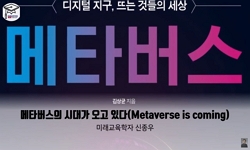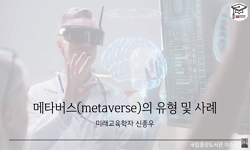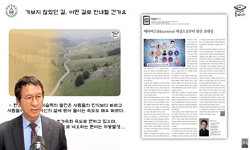A ‘brand’ metaverse is a virtual space where customers experience the brand via digital avatars. With the advancement of augmented and virtual reality technologies, a brand metaverse is an important medium for communicating the brand with customer...
http://chineseinput.net/에서 pinyin(병음)방식으로 중국어를 변환할 수 있습니다.
변환된 중국어를 복사하여 사용하시면 됩니다.
- 中文 을 입력하시려면 zhongwen을 입력하시고 space를누르시면됩니다.
- 北京 을 입력하시려면 beijing을 입력하시고 space를 누르시면 됩니다.
BRAND EXPLORATION IN METAVERSE: EFFECTS OF SELF-AVATAR RESEMBLANCE ON BRAND ATTITUDE AND PURCHASE INTENTION, AND MODERATED MEDIATION OF COPRESENCE
한글로보기https://www.riss.kr/link?id=A108691437
- 저자
- 발행기관
- 학술지명
- 권호사항
-
발행연도
2023
-
작성언어
English
- 주제어
-
KDC
325
-
등재정보
01
-
자료형태
학술저널
-
수록면
416-416(1쪽)
- 제공처
-
0
상세조회 -
0
다운로드
부가정보
다국어 초록 (Multilingual Abstract)
A ‘brand’ metaverse is a virtual space where customers experience the brand via digital avatars. With the advancement of augmented and virtual reality technologies, a brand metaverse is an important medium for communicating the brand with customers. In this study, we focus on the resemblance between a customer’s self and his/her avatar (i.e., self-avatar resemblance) in the brand metaverse and examine its influence on brand attitude. Prior studies examine self-avatar resemblance exclusively in non-brand-related virtual gaming platforms and test its effect on identity perception and immersion in the platforms. However, few studies probe the extent to which self-avatar resemblance influences customers' exploration in a brand metaverse and their attitude toward the brand. We fill this research gap by uncovering the positive effects of self-avatar resemblance on brand attitude and purchase intentions. Moreover, we proffer that the customers’ engagement toward the brand metaverse platform mediates the relationship between self-avatar resemblance and brand attitude. In addition, based on the interactive nature of metaverse, we hypothesize copresence―the number of avatars exploring the brand metaverse at the same time―to be a moderator, which strengthens the mediation. We conduct an experiment using a fashion brand’s virtual world positioned in a popular metaverse platform. In this experiment, participants create an avatar and freely roam around in the brand metaverse with their avatars. By reviewing the screen recording of each participant’s brand exploration in the metaverse, we measure self-avatar resemblance and other constructs. We also collect responses from questionnaires designed to measure attitudinal and behavioral variables. With the accumulated data, we test the hypotheses using partial least square structural equation model and find the results largely consistent with the hypotheses. With the findings, we provide important and interesting implications to marketing practitioners considering and doing ‘metaverse marketing.’
동일학술지(권/호) 다른 논문
-
- 글로벌지식마케팅경영학회
- Qiushi Gu
- 2023
- 01
-
A BIBLIOMETRIC ANALYSIS OF SPIRITUAL TOURISM RESEARCH
- 글로벌지식마케팅경영학회
- Eva Lang
- 2023
- 01
-
SECOND-HAND LUXURY MARKET. USA AND ITALY: A CROSS-CULTURAL COMPARISON
- 글로벌지식마케팅경영학회
- Tiziano Vescovi
- 2023
- 01
-
INTRINSIC VALUES REFLECTED IN LUXURY FASHION ADVERTISING: AN EXPLORATORY STUDY
- 글로벌지식마케팅경영학회
- Antigone G. Kyrousi
- 2023
- 01




 코리아스칼라
코리아스칼라






